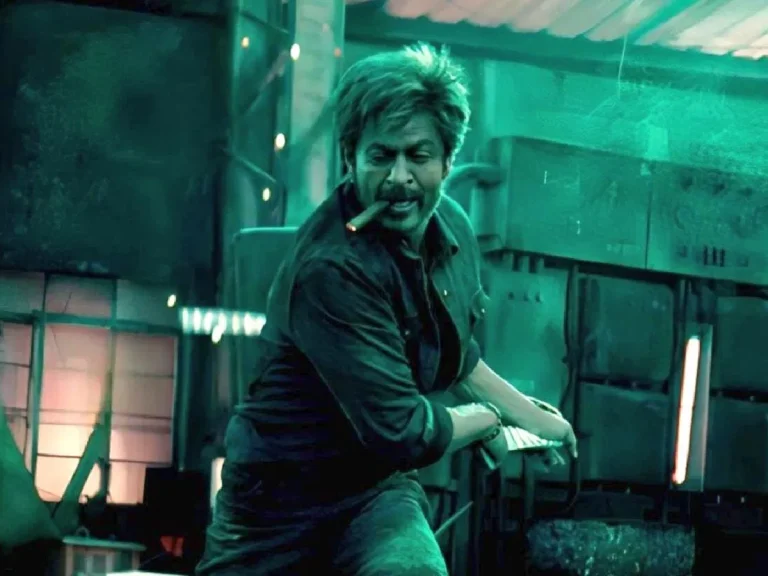Mukundan Unni Associates (2022): A discussion of Shakespeare adaptations isn’t exactly a “thing” right now, thanks to his oeuvre covering most (if not all) plot points and the fact that few films aren’t Shakespearean in some way. We have reached a point where a film’s (or any text’s) similitude to one of his plays falls flat. Now it is easy to overlook – for lack of a better word – the late British playwright’s (whose authorship is still contested by conspiracy theorists and obstinate Marloweans) influence on popular culture, of which cinema is an indispensable part.
One doesn’t have to consider ‘official’ adaptations (like the Hamlets of Olivier, Branaugh, Gibson, etc., or the Macbeths of Coen, Kurzel, and Kurosawa) to see what I’m talking about. There is an ever-growing list of Shakespeare “retellings” like Forbidden Planet (The Tempest), Just One of the Guys (Twelfth Night), A Thousand Acres (King Lear), The Lion King and Bahubali (Hamlet), and every tragic love story that follows the lovers-belonging-to-rival-families trope is basically Romeo and Juliet. This phenomenon is usually unintentional, not because Shakespeare is deeply ingrained in the collective unconscious of filmmakers, but simply because the former’s subject matter is commonplace and accessible or, as it is generally called, universal. You don’t need Shakespeare to tell you how ludicrous procrastination can be, or how ambition can sometimes be lethal, or how giving unconditional love isn’t exactly the smartest thing to do.
So, there isn’t much of a point in discussing the “Shakespeareness” of a text. However, if it questions or even mocks (intentionally or otherwise) the “original” plot, character(s), or both, it passes the conditions for deliberation. A quick change of scene to the landscape of Indian cinema: there have been several “true” Shakespeare adaptations – the most notable of them being Vishal Bhardwaj’s Shakespeare trilogy (Maqbool, Omkara, and Haider) – as well as films like those mentioned initially, that ‘play’ with the plays of Shakespeare not just in terms of changing settings, but also in altering the stakes, character choices, their motivations, etc. In hindsight, Bhardwaj’s films too check out these boxes. His works significantly diverge from the original. But, alluding to Polonius’ observation about Hamlet, “…there is a method to [this madness];.”
Bhardwaj still seems true to the original, partly because of his adherence to the three-act structure of Shakespeare. In Malayalam cinema, we have examples ranging from Jayaraj’s Kaliyattam (where the basic plot of Othello has been retold in the backdrop of the Theyyam performance in Northern Kerala), Veeram (with the plot of Macbeth set in the 13th Century North Malabar), to Dileesh Pothen’s Joji (a Macbeth adaptation set in a village in present-day Kottayam, Kerala). While all these films have reworked and deconstructed their Shakespearean counterparts, the basic feel/mood of the original, especially in the final denouement, is retained.
This is where a film like Mukundan Unni Associates comes into discussion. This Abhinav Sunder Nayak directorial checks the above boxes while being neither an official adaptation nor a linear string of events that culminate in a classic Shakespearean finale (where the protagonists die). The film follows the ups and downs (mostly ups) of Mukundan Unni, a lawyer who strives for success and does everything in his power – deception, corruption, and murder, among other crimes – to thrive in his legal career. Although this sounds like any other Shakespearean tragedy, what makes Mukundan Unni different/interesting is the way the protagonist’s mind is an open book to the spectator; his thoughts are narrated through voiceovers by the character himself.
He introduces himself: “This is me… Advocate Mukundan Unni… Even after wandering all around for so many years, no one in their right mind has hired me to fight a case. But being hired by dimwits feels good. It feels like I’m in control.” By Aristotle’s definition, he is not a tragic hero as he doesn’t come from the nobility. He understands his shortfalls and hardly feels guilty for his crimes. And most importantly, his actions do not lead to his downfall. In fact, he succeeds in the end. While the lack of a guilty conscience is seen in other “Shakespearean” films such as Joji, some sort of poetic justice prevails at the end, where the protagonists get carried away by their own actions, which culminates in their death, like that of Shakespearean tragedies.

However, Dan Gilroy’s Nightcrawler – to which critics have compared Mukundan Unni – doesn’t subscribe to this kind of “bad karma” ending but shows how the protagonist’s crimes have actually paid off. Although it is like Mukundan Unni in that regard, it lacks the “innocent” optimism the protagonist upholds and the postmodern playfulness on/with which the narrative is built; right from the play with the aspect ratio to the questioning of fantasy/realism, good/evil dichotomies.
Mukundan Unni reveals its allegiance (if not an outright resemblance) to Macbeth on two levels. First, through its portrayal of the central character, Mukundan Unni as an ambitious man who doesn’t shy away from murdering a few people and then some more in the process of tying up loose ends. Secondly, through plot points that have parallels to the play (which is more prominent than in Gilroy’s film where apart from Louis Bloom, the central character, is like Macbeth and Nina Russo, the head of the news station for which the former freelances for, who have been compared to Lady Macbeth).
The basic difference, so to speak, is that instead of the ‘three witches’ (an external stimulus that prompts Macbeth’s ambition), Mukundan Unni gets his motivation from within: “Hard work, dedication, perseverance, discipline. I have it all. But I haven’t been able to become successful.” His confusion about why he is not successful is shown to be more obvious an issue, unlike Macbeth, who did not know per se that he needed more in life until he overhears the witches’ prophecy. But Mukundan Unni, too listens in on a conversation – between Advocate Venu and his two colleagues (a total of three people). Venu inadvertently shows him the way to success only to get murdered by the former, which “qualifies’ ‘ Venu to be read alongside Shakespeare’s Duncan (the king whom Macbeth murders and becomes a replacement for) as well. Likewise, there are several parallels between the two texts.
Here is an outline of the similarities between the two:
Both Macbeth and Mukundan Unni commit their first ‘major’ murder to overthrow a towering figure and replace them (King Duncan/Advocate Venu). Both characters move up in life for a while until those around start suspecting foul play, which results in them having to commit more murders to cover up the original crime. And both men kill their best friends – Banquo/Robin. Mukundan Unni gets frequent hallucinatory visits from his victim, Advocate Venu. Still, the difference, so to speak, is that he isn’t surprised or even scared by it, unlike Macbeth, who loses himself when he hallucinates Banquo’s ghost in the famous ‘banquet scene.’
Further, Mukundan Unni too explores the possibility of having a female accomplice, a woman in the loop of all that is happening in the protagonist’s life, through the character of Meenakshi. But she is not allowed to get too involved, unlike Lady Macbeth, who is part of the whole scheme. She instructs Macbeth to wear a façade: to “look like the innocent flower, but be the serpent under it.” The serpent in Mukundan Unni, however, is not just a metaphor but has a physical form and is instrumental in Venu’s murder. Moreover, he almost ‘worships’ it, feeding it, possibly because he considers it as the root cause of his success.
The reason for Mukundan Unni’s complete lack of affect could be due to the level of normalcy he attributes to criminality, emphasized through his admission (sans guilt) of killing his grandfather, which, we understand, is his first murder. The playfulness (a staple of the postmodern sensibility) with which the narrative/narrator proceeds in Mukundan Unni is striking in the sense that unlike your run-of-the-mill unreliable narrator/protagonist (Fight Club, American Psycho, Shutter Island, Mulholland Drive, and the likes) Mukundan Unni is almost aware of the absurd condition he is in and, since he finds/wants no exit, he makes the best use of it. It wouldn’t be wrong, then, to assign to Shakespeare’s Macbeth the role of a prototype to characters like Mukundan Unni, who prosper in what the original has tried and failed.
Advocate Venu’s ‘apparition’ does not serve the purpose of scaring Mukundan Unni but helps him carry out other crimes, unlike that of Banquo in Macbeth. To cite a different example that showcases his excellence (over the prototype), he needs zero external assistance in executing his wishes, nor does he need constant ‘ego-boost’ from the missus; he does that on his own, unlike Macbeth. Of course, Meenakshi knows he is up to something vile – which she is perfectly fine with – but how much she knows remains an enigma.
Since postmodernism is ‘essentially’ a rejection of meta-narratives that legitimize what is, in fact, hollow, analyzing narratives that still have an honest quest for finality – success, in Mukundan Unni’s case – while being set in a typically postmodern framework is problematic. This is where a highly nuanced philosophy like ‘meta-modernism’ – that involves the revival of forgotten (read modernist) ideas like hope, Truth, and affect – holds water.
Mukundan Unni has the makings of a categorically postmodern text: with its unreliable narrator, unheroic hero, moral relativism, inherent playfulness, intertextuality (the eponymous character shares his name with the goofy lawyer from Meesha Madhavan essayed by Salim Kumar), etc. But, at the same time, the text also glamorizes the quest for totality (a “good” life envisioned by the protagonist, which he achieves in the end), making it a critique of both the “original” text as well as its own postmodern (dis)position by embracing what can be called as meta-modernism.



![Three Headed Beast [2022]: ‘Tribeca’ Review – A Quiet And Sensual Examination Of Open Relationships](https://79468c92.delivery.rocketcdn.me/wp-content/uploads/2022/06/THREE-HEADED-BEAST-768x432.png)



